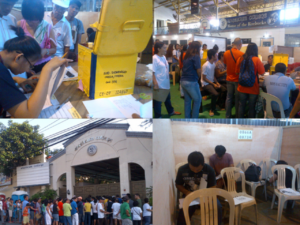The National Food Authority (NFA) is ramping up its procurement activities this year in anticipation of the enactment of the rice tariffication bill, given that under the measure, the agency will no longer be allowed to import rice.
In a statement, the NFA said it had been purchasing 7,000 bags of palay daily since the start of the year. About the same time last year, the agency bought only 320 bags a day.
While January is not a traditional palay harvest month, there are areas in Mindanao where farmers are currently harvesting their crops.
Majority of the NFA’s stocks were bought from the region of Soccsksargen (South Cotabato, Cotabato, Sultan Kudarat, Sarangani and General Santos City). While it is not as productive as Central Luzon when it comes to rice production, the region contributed a total of 79,133 bags of palay to NFA’s stocks, or 89 percent of its total procurement in January.
As of Tuesday, the agency has already procured 88,982 bags of palay, or about 44 percent, of its target this month.
For 2019, it aims to buy at least 7.78 million bags of local palay.
NFA acting administrator Tomas Escarez attributed the willingness of farmers to sell their harvest to the agency to two things: firstly, the recent approval of the NFA Council to give an additional P3.70 incentive on top of the current support price at P17 a kilogram, bringing the buying price at P20.70 a kilo; secondly, the readiness of NFA personnel to accept palay deliveries any day of the week, even during weekends.
Escarez said palay procurement would now be done on a year-round basis, adding that it would not be confined to the traditional harvest schedule between March and May and between October and December.
Last year, after issues on importation led to the shortage of NFA rice in the market, President Duterte ordered the grains agency to source its buffer stocks from local farmers.
Following the current market distribution of NFA rice in the market at an average of 10 percent, Escarez said the agency had enough rice stocks to last until August.
The rice tariffication bill would remove import restrictions but lawmakers said the tariff of between 35 to 50 percent would protect farmers from unfair competition.


